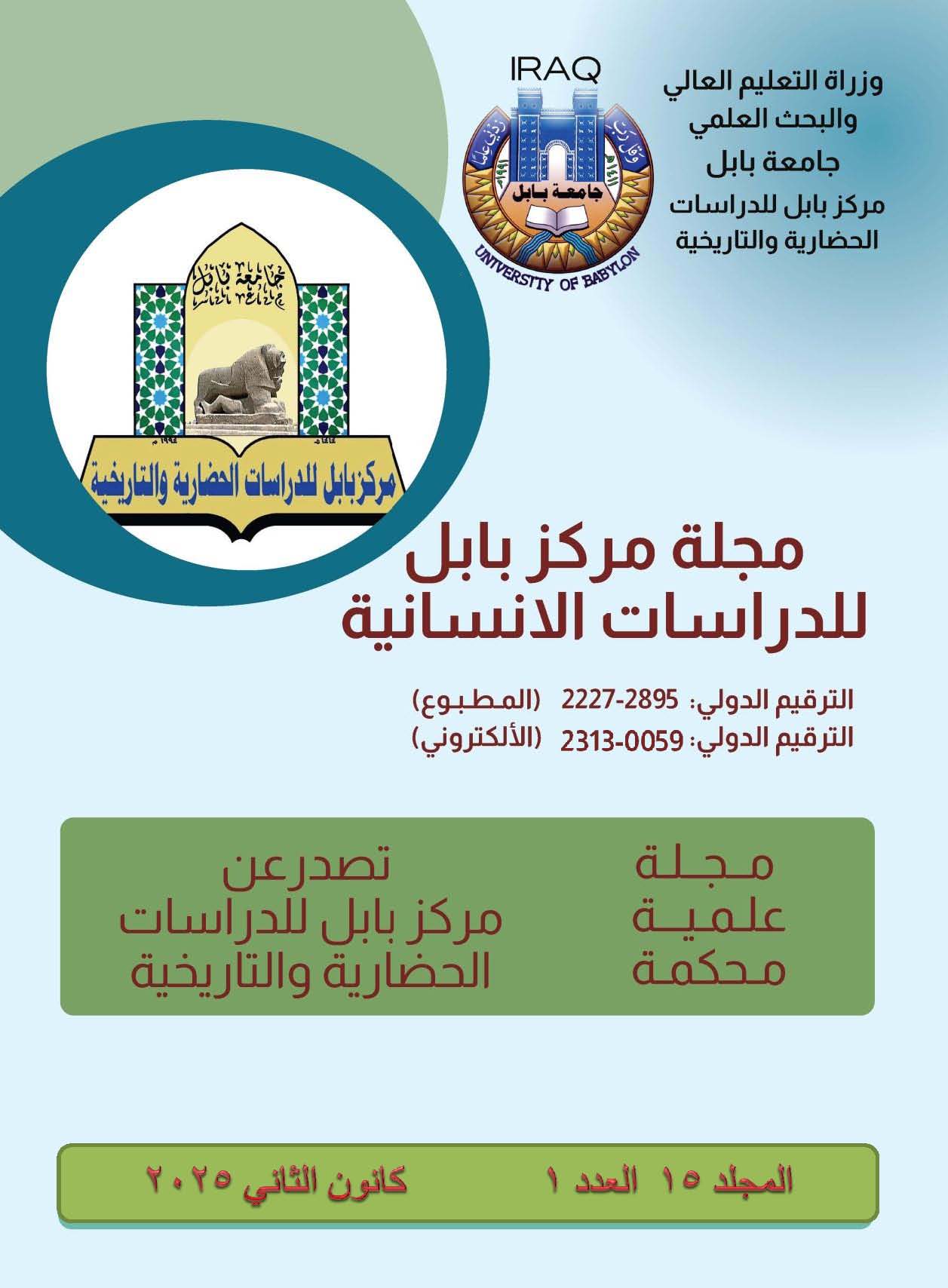The implications of the structural grammatical methods of the writer Qais Al-Attar The group “In the mihrab of the Heart” is an example
Keywords:
Grammar, construction semantics, In the mihrab of the Heart, Al-Attar.Abstract
The research is based on studying the structural grammatical method in the poetry of the Iraqi poet Qais Al-Attar in his poetry collection called “In the mihrab of the Hear” in an attempt to explore the specificity of the structural methods in his poetry, by relying on the descriptive analytical method that is based on identifying the studied phenomena and their methods, and there is an analysis Selected samples of his poetry. The research concluded with a number of results, the most prominent of which was that the structural grammatical methods in his anthology were part of its poetry, and a means of clarifying its meanings and conveying its message to the recipient. The structural grammatical methods that characterized Al-Attar’s poetry were varied, the most prominent of which are the imperative and the interrogative. They all came with their various tools, and were a means of enriching the text on the semantic and syntactic levels at the same time. With his mastery of language and his poeticism, the poet was able to adapt his compositions to be a means of expressing his meanings in a language with artistic aesthetic dimensions that are not hidden from the recipient. Finally, the evidence of the command, after taking its context into account, carries connotations of guidance, incapacity, compromise, etc., and the prohibition in his poetry carries connotations of guidance. And reprimand, rebuke, and exhortation. The interrogative carries various metaphorical connotations, such as exclamation, denial, glorification, report, and others. He uses the method of calling to convey his doubts and sadness by using the extension of the sound in the letter “ya,” and he uses it to show the greatness of the caller or indicate his spatial distance, and the hamza to indicate the presence of the caller in his mind. Despite his distance, and the various methods of supplication appeared in his poetry, some of which are predicated, the apparent meaning of which is supplication, and some such as are usual among the Arabs.







